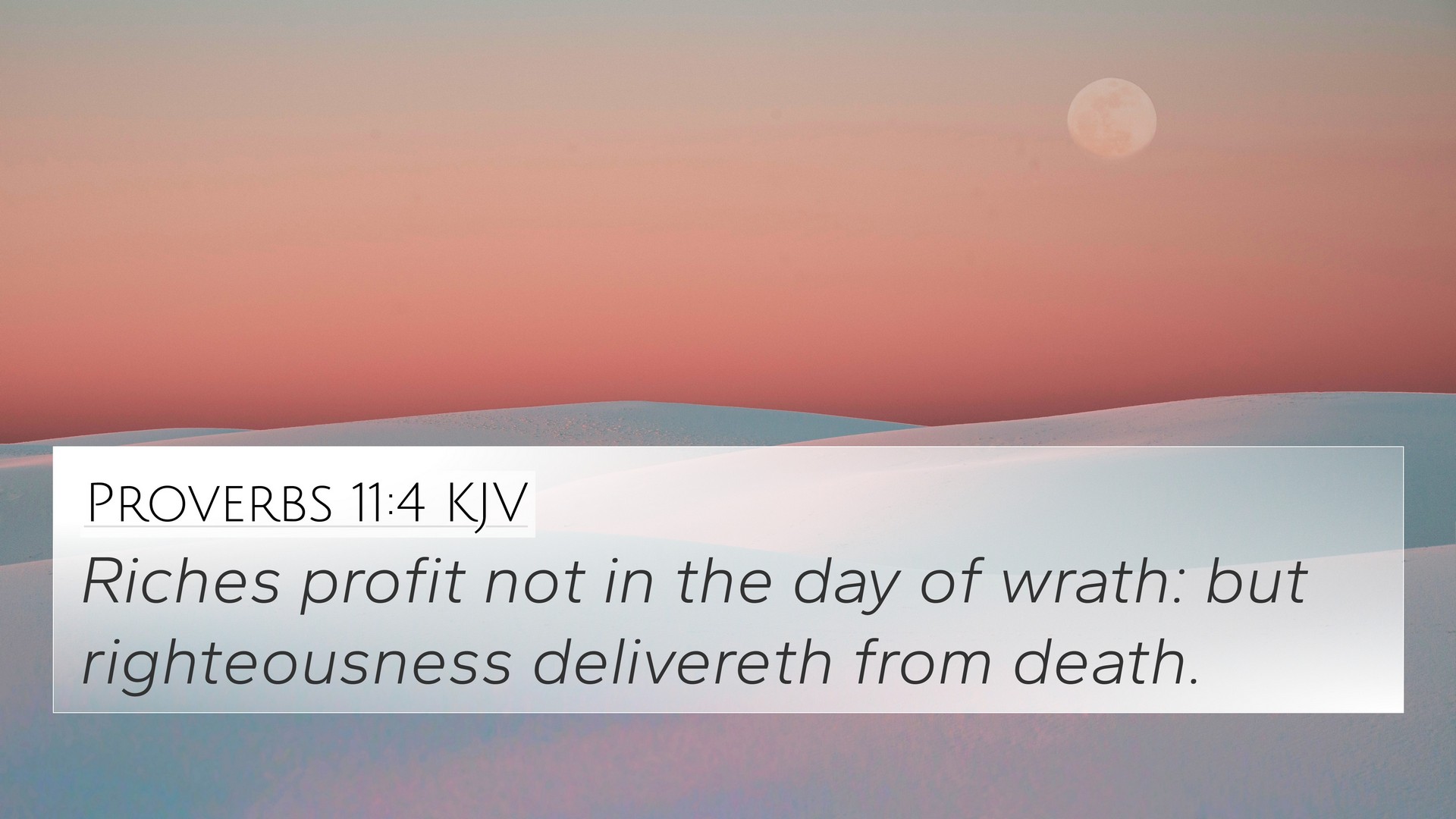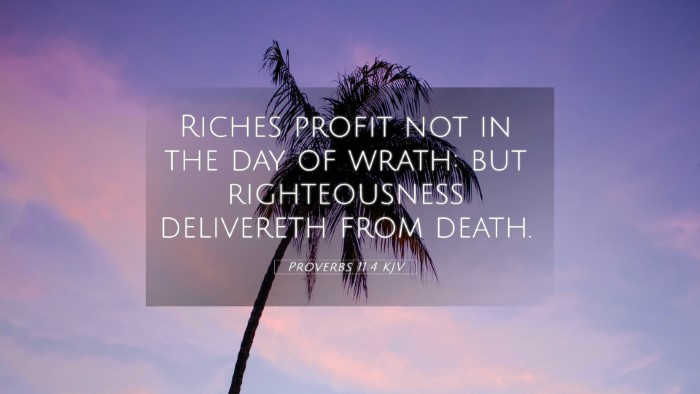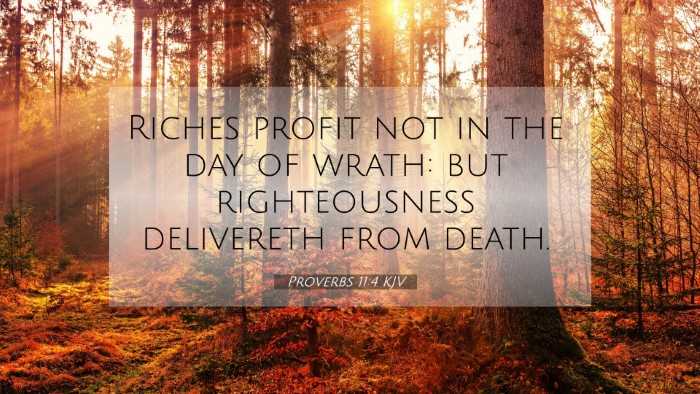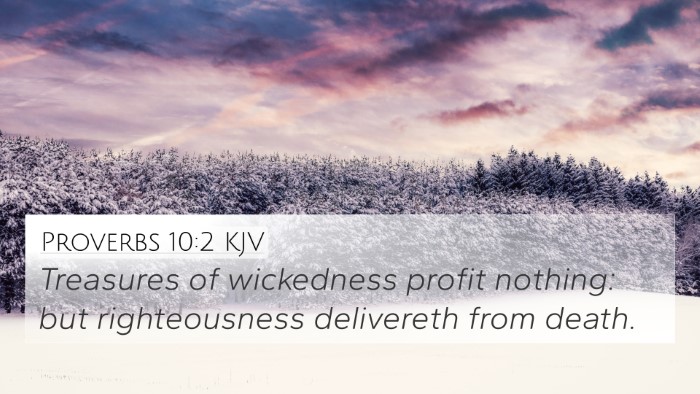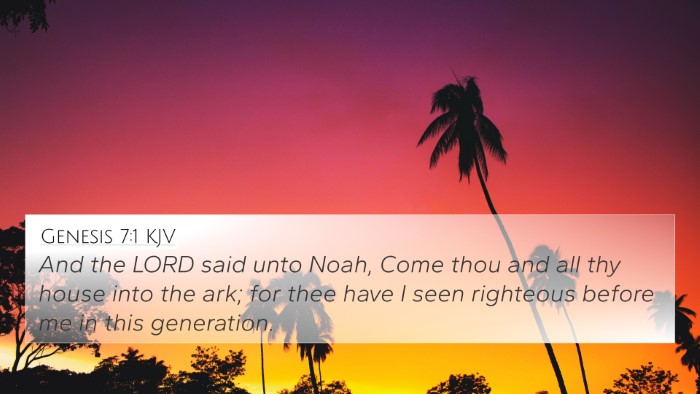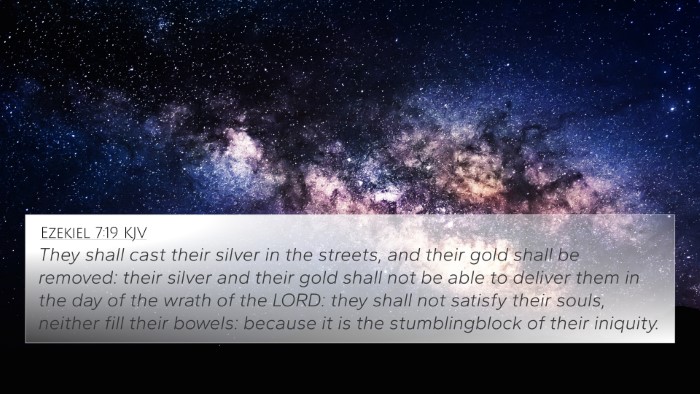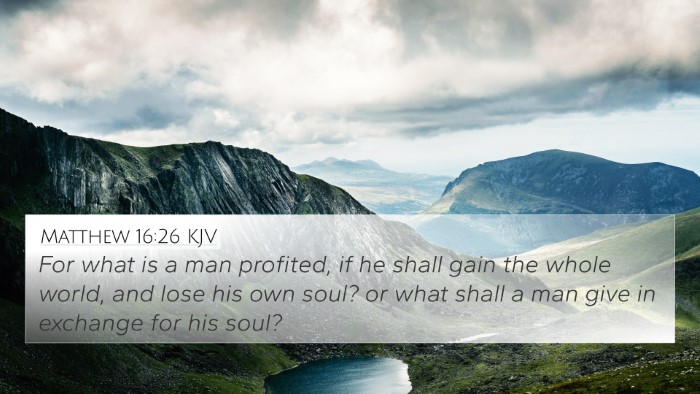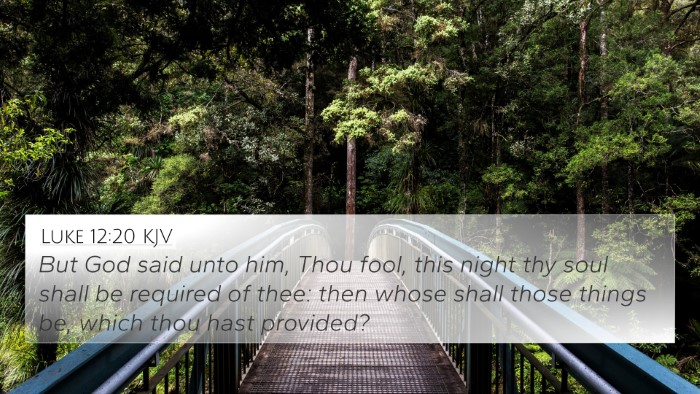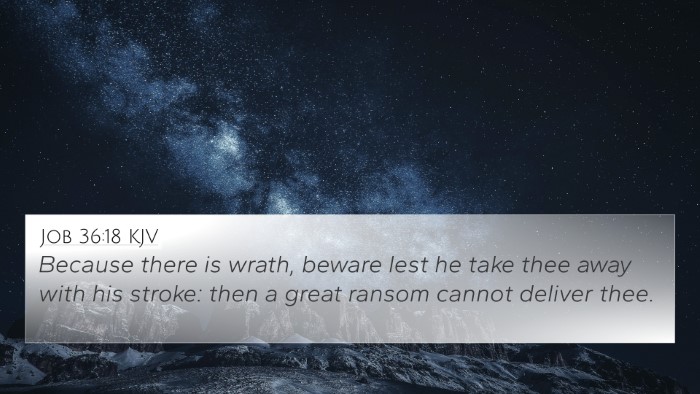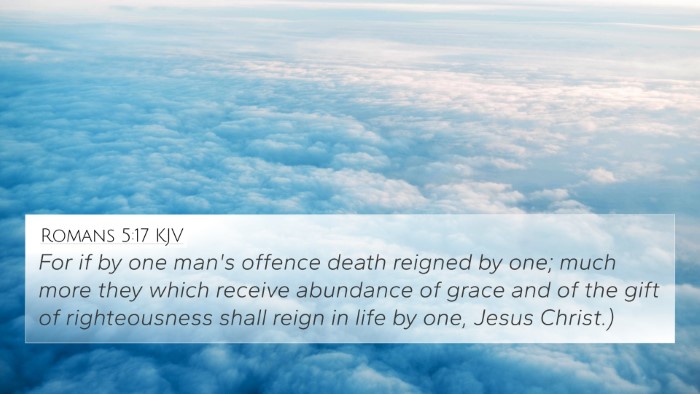Understanding Proverbs 11:4
Bible Verse: Proverbs 11:4 - "Riches do not profit in the day of wrath, but righteousness delivers from death."
This verse highlights the contrast between earthly wealth and spiritual righteousness. In the context of the Book of Proverbs, it serves as a reminder that material possessions are of little value in the face of divine judgment. The central theme revolves around the idea that true deliverance comes from a right relationship with God, rather than from one's financial status.
Verse Interpretation
- Matthew Henry's Commentary: Henry emphasizes that while riches may provide temporary security and comfort, they cannot save a person from the impending judgment of God. He argues that only righteousness - living a life aligned with God's will - can secure one's spiritual safety.
- Albert Barnes' Notes: Barnes points out that the 'day of wrath' refers to the time of God's judgment, indicating that wealth is powerless in that scenario. His commentary encourages believers to focus on the cultivation of righteousness, which has everlasting significance.
- Adam Clarke's Commentary: Clarke elaborates on the nature of righteousness as a protective shield, affirming that it is a person's character and actions, rather than their wealth, that will ultimately determine their fate in the afterlife.
Thematic Connections
The theme of righteousness over riches is a recurring one throughout Scripture. Here, we highlight some Bible verse cross-references that resonate with Proverbs 11:4:
- Psalm 49:6-7: "They that trust in their wealth, and boast themselves in the multitude of their riches; none of them can by any means redeem his brother, nor give to God a ransom for him." - This verses echoes the futility of relying on wealth.
- Matthew 6:19-21: "Lay not up for yourselves treasures upon earth... for where your treasure is, there will your heart be also." - A reminder to prioritize spiritual over material wealth.
- Luke 12:15: "And he said unto them, Take heed, and beware of covetousness: for a man's life consisteth not in the abundance of the things which he possesseth." - This aligns with the message that our lives should not be defined by wealth.
- 1 Timothy 6:7: "For we brought nothing into this world, and it is certain we can carry nothing out." - This highlights the temporary nature of material possessions.
- James 1:10-11: "But the rich, in that he is made low: because as the flower of the grass he shall pass away." - Here, temporal riches are directly connected to spiritual humility.
- Ecclesiastes 5:10: "He that loveth silver shall not be satisfied with silver; nor he that loveth abundance with increase: this is also vanity." - This speaks to the emptiness of loving riches.
- Romans 2:6-8: "Who will render to every man according to his deeds: to them who by patient continuance in well doing seek for glory and honour and immortality, eternal life; but unto them that are contentious, and do not obey the truth, but obey unrighteousness, indignation and wrath." - This foreshadows the judgment where righteousness is rewarded.
Cross-Referencing Biblical Texts
Engaging in cross-referencing Biblical texts offers deeper understanding of passages. For Proverbs 11:4, notices are made regarding:
- The direct relationship between riches and spiritual condition.
- Exploring the role of righteous living in both the Old and New Testaments.
- The thematic parallels between Proverbs 11 and teachings of Jesus regarding wealth.
- The connections between Proverbs wisdom and the moral teachings found in the epistles.
How to Use Bible Cross-References
To fully grasp the implications of Proverbs 11:4, one may consider the following tools for Bible cross-referencing:
- Bible Concordance: A useful resource for locating similar themes.
- Bible Cross-Reference Guide: Facilitates connections across different books.
- Bible Reference Resources: Helps in finding contextual background for verses.
- Cross-Reference Bible Study: Engaging in verse studies to understand different perspectives.
- Comprehensive Bible Cross-Reference Materials: These can aid in exploring deep theological themes.
Conclusion
In summary, Proverbs 11:4 serves as a profound reminder of the transitory nature of wealth and the eternal value of righteousness. This verse, through its connections with other Scriptures, enhances our understanding of how God prioritizes character over material possessions, encouraging believers to invest in spiritual riches. By exploring the interconnectedness of verses, we not only deepen our comprehension but also align our lives with divine principles that lead to ultimate deliverance.
